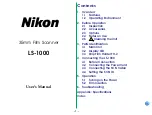
Operating Instructions
Chapter
3
CLX490
8009237/RB47/2007-08-03
©
SICK AG · Division Auto Ident · Germany · All rights reserved
3-5
Product description
3.2.1
Autofocus function
The autofocus function enables the CLX to detect the distance of an object without the need
for external sensors, and then adjust the focus position automatically. In order to do so, the
CLX measures the object distance in its reading field in front of the reading window and inter-
nally creates a distance profile. Following this, it positions the focus on the object.
3 operating modes are provided for various applications:
•
Minimum distance:
the CLX focuses on the minimum distance in the distance profile
and ignores the background in the reading field. Application: with unobstructed view of
the object without any surrounding objects protruding into the reading plane.
One object with bar code(s) only is inside the reading field during one reading pulse.
•
Differential background:
the distance profile of the reading field background is pro-
grammed (teach-in) in the CLX without any objects present. The CLX focuses on the ob-
ject which it recognizes by comparing the object with the background. Application: with
unobstructed view of the object restricted by other objects that protrude into the read-
ing plane.
One object with barcode(s) only is inside the reading field during one reading pulse.
•
Differential background and tracking:
if several objects with different distances are
positioned in the reading field at the same time (distance conflict), the CLX focuses on
the object that is nearest to but has not exceed its internal focus switchover point.
Application: in OTS operation (applications with tracking by the OMNI Tracking Controller
OTC 400), or stand alone in internal tracking mode.
The distance profile of the background can also be displayed in the "CLV-Setup" program.
The reading field is defined by the autofocus range. The park setting of the focus position,
from which the device focuses for each read, can be specified in addition to a time and/or
position-related delay (timeout or hysteresis). If necessary, an offset can be defined for the
focus position to be set by the measurement. The depth of field, which radiates in the direc-
tion of the scan line and is caused by the V-principle of the beam deflection, is optimized as
a result (
Fig. 3-3:
Optimization the depth of field for the object
Optimum focus position:
measured distance plus offset for maximum
Measured distance
Depth of field (DOF)















































